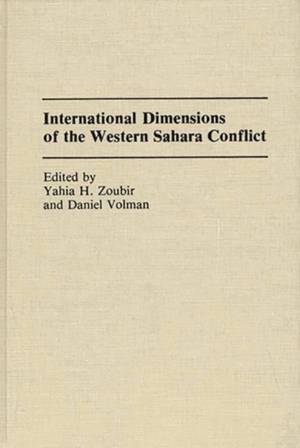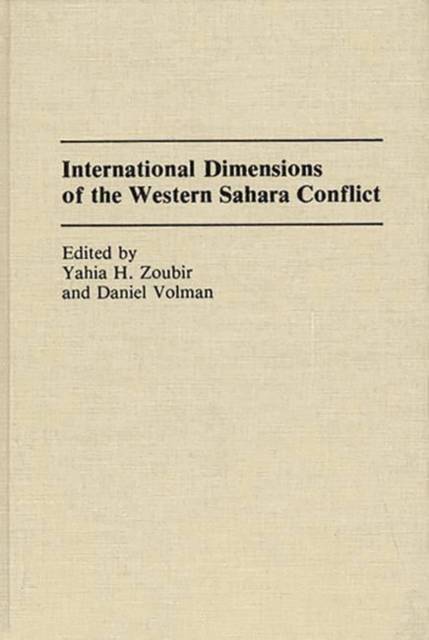
- Retrait gratuit dans votre magasin Club
- 7.000.000 titres dans notre catalogue
- Payer en toute sécurité
- Toujours un magasin près de chez vous
- Retrait gratuit dans votre magasin Club
- 7.000.0000 titres dans notre catalogue
- Payer en toute sécurité
- Toujours un magasin près de chez vous
International Dimensions of the Western Sahara Conflict
Daniel Volman, Yahia H. Zoubir
Livre relié | Anglais
161,45 €
+ 322 points
Description
The war in the Western Sahara recently entered its sixteenth year. Although progress toward peace has been made, concrete steps to a final resolution have not yet occurred. This has had serious political, social, economic, and military consequences for the countries in the region. Despite the significance of the issue, until now very few scholarly works have dealt with the regional and international dimensions of the conflict. In particular, little attention has been paid to the role of the superpowers and of the United Nations in the region and to the other related issues which are the focus of this book.
The Western Sahara conflict raises serious questions about the role of international law and of the United Nations in achieving the decolonization of former colonial territories and resolving regional conflicts. Taken together, the work of the scholars, diplomats, and experts in international law who have contributed to this volume constitutes a significant contribution to our understanding of the role of outside powers in the origins and evolution of the war in the Western Sahara. Their work also casts new light on the efforts of the Maghrebi states to overcome regional divisions by themselves and on the continuing attempts by the United Nations to resolve the conflict in the Western Sahara and restore respect for international law. This work will interest specialists West African affairs and in international law and organizations.Spécifications
Parties prenantes
- Auteur(s) :
- Editeur:
Contenu
- Nombre de pages :
- 280
- Langue:
- Anglais
Caractéristiques
- EAN:
- 9780275938215
- Date de parution :
- 17-03-93
- Format:
- Livre relié
- Format numérique:
- Genaaid
- Dimensions :
- 152 mm x 229 mm
- Poids :
- 576 g

Les avis
Nous publions uniquement les avis qui respectent les conditions requises. Consultez nos conditions pour les avis.






